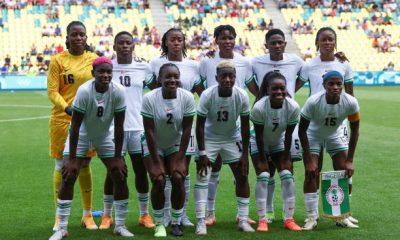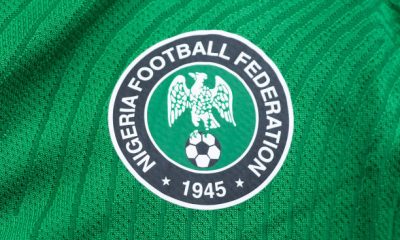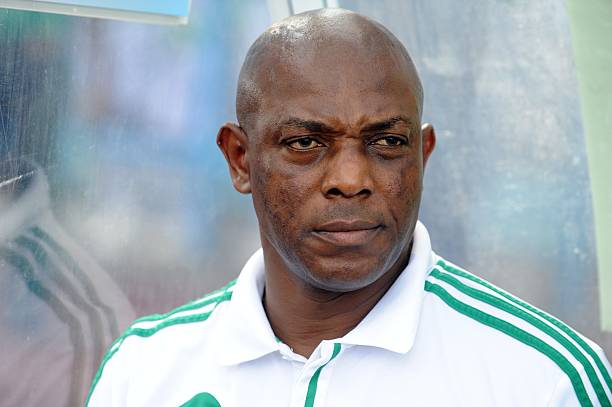
The Super Eagles of Nigeria have been shaped by many influential figures, but perhaps none more so than the Nigerian football managers who have led the team to historic achievements and triumphs. These coaches have not only influenced the tactics and strategies of Nigerian football but have also contributed significantly to the nation’s rich footballing history. From homegrown talents to international legends, Nigerian football managers have shaped the national team in ways that have left a lasting legacy. In this article, we’ll delve into the top 10 legendary Nigerian football managers who revolutionized the Super Eagles and propelled them to success on both continental and global stages.
9. Amos Adamu – The Pioneer Administrator
Amos Adamu was not only a football administrator but also had a significant influence on Nigerian football management. His contributions extended beyond coaching, and he is often credited for helping set the Super Eagles on a course for success. Although not a head coach in the traditional sense, Adamu’s impact as a manager helped shape Nigerian football at both national and international levels. His ability to rally support for the Super Eagles’ goals led to Nigeria’s sustained success in global football.
8. Lars Lagerbäck – The Swedish Strategist
Lars Lagerbäck, a Swedish coach with vast international experience, took charge of the Super Eagles in 2010. Though his tenure was relatively short, Lagerbäck’s influence on Nigerian football was significant. Known for his tactical discipline and defensive strategies, Lagerbäck helped Nigeria qualify for the 2010 World Cup in South Africa. His solid approach to team organization and defensive stability improved Nigeria’s performances on the global stage, and he is credited with laying the groundwork for a stronger, more disciplined Super Eagles squad.
7. John Obi Mikel – The Player-Coach Influence
While John Obi Mikel may not have been one of Nigerian football managers, his influence on the team as a player cannot be overstated. As the captain of the Super Eagles, Mikel was instrumental in shaping the team’s identity and guiding the younger players. Under his leadership, Nigeria won the 2013 Africa Cup of Nations title and had significant successes in international competitions. Mikel’s calm and composed demeanor on and off the field made him an unofficial Nigerian football managers of sorts, and his leadership qualities undoubtedly played a pivotal role in Nigeria’s footballing success.

6. Gernot Rohr – The German Precision
Gernot Rohr’s is also one of Nigerian football managers. His appointment as head coach of the Super Eagles in 2016 brought a sense of stability and pragmatism to the team. Rohr, known for his meticulous approach to football, helped revitalize the national team, ensuring their qualification for the 2018 World Cup in Russia. Under Rohr, the Super Eagles displayed a balanced and disciplined style of play, making strides in international football. His leadership ensured the growth of young stars like Wilfred Ndidi, Samuel Chukwueze, and Alex Iwobi, ensuring a bright future for Nigerian football. Rohr’s tenure marked a period of consistent success, as he led Nigeria to a third-place finish in the 2019 AFCON.
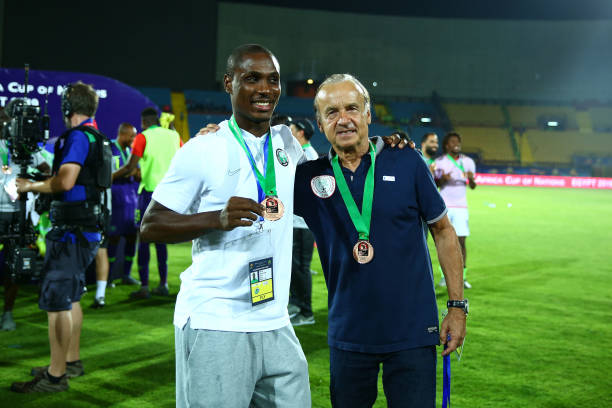
5. Augustine Eguavoen – The Super Eagles’ Savior
Augustine Eguavoen is one of the most passionate Nigerian football managers in history. As both a player and coach, he has served Nigeria with immense pride. Eguavoen’s most significant managerial achievement came in 2006 when he led the Super Eagles to the World Cup in Germany. Eguavoen also managed the team during the 2010 World Cup qualifying campaign, where he nearly led Nigeria to another African Cup of Nations triumph. His contributions were crucial in the development of key players, and his determination to build strong, competitive teams makes him one of Nigeria’s most beloved football managers.
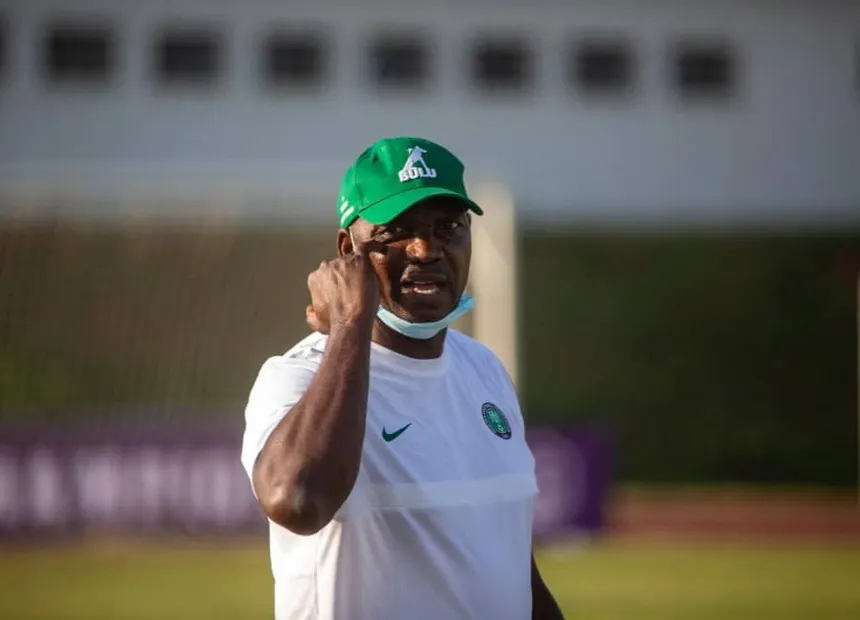
4. Shaibu Amodu – The Tactical Genius
Shaibu Amodu was one of the most respected Nigerian football managers who brought tactical intelligence and sharp strategy to the Super Eagles. Amodu was instrumental in guiding the team to qualification for the 2002 World Cup and managed the team during two separate stints, delivering consistent results. Amodu’s most notable achievements include his leadership in the 1994 and 2002 World Cup campaigns, where he built a formidable team that included the likes of Jay-Jay Okocha, Nwankwo Kanu, and Emmanuel Amunike. His tactical versatility and ability to build balanced squads cemented his legacy as one of Nigeria’s most influential managers.
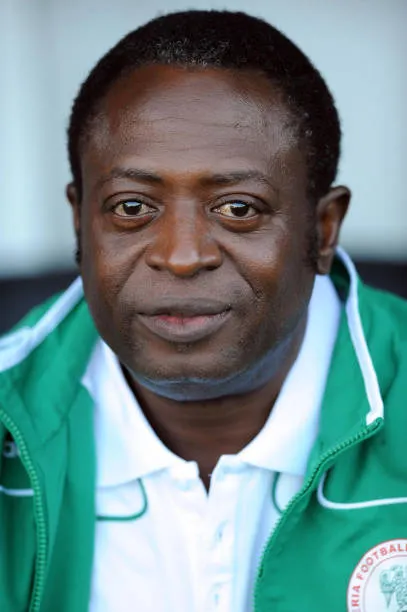
3. Philippe Troussier – The French Maestro
Philippe Troussier, a French tactician, took charge of the Super Eagles in the late 1990s. His reign as one of Nigerian football managers was marked by a disciplined and structured approach to the game, and he made significant progress with the national team. Troussier helped Nigeria qualify for the 2002 World Cup and led them to the semifinals of the 2000 AFCON. Though his tenure was short-lived, Troussier’s influence on the Super Eagles was profound, and his tactical input helped the team take significant strides toward becoming a competitive force on the global stage.
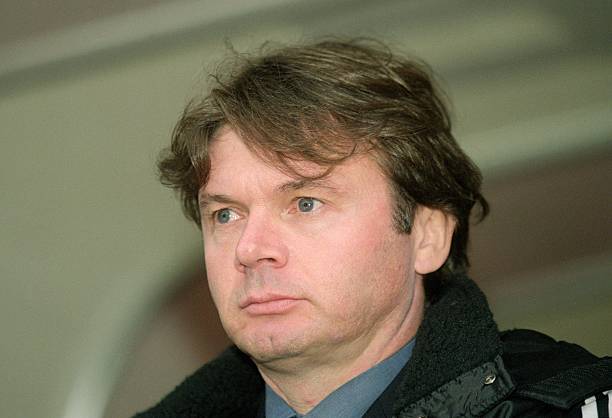
SUGGESTED FOR YOU
Super Eagles AFCON: Top 10 Historic Squads That Shaped Nigeria’s Legacy
2. Clemens Westerhof – The Architect of Modern Nigerian Football
Clemens Westerhof is another iconic figure in Nigerian football managers history. The Dutchman took over the Super Eagles in the late 1980s and transformed the team into a formidable force on the continent. Westerhof’s methods were forward-thinking, emphasizing fitness, discipline, and tactical awareness. Under his leadership, Nigeria clinched their second AFCON title in 1994 and earned their first-ever qualification for the World Cup in 1994. His legacy is one of the most impactful in Nigerian football, as he laid the foundation for Nigeria’s future successes.
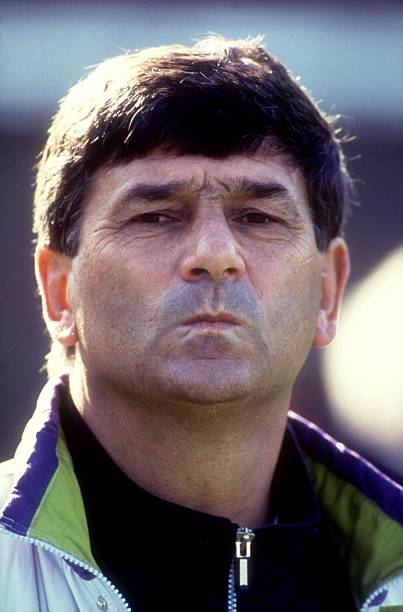
1. Stephen Keshi – The ‘Big Boss’
Stephen Keshi is undoubtedly one of the most legendary Nigerian football managers of all time. Nicknamed the ‘Big Boss,’ Keshi not only captained the Super Eagles to victory in the 1994 Africa Cup of Nations (AFCON) but also managed the team to their third AFCON title in 2013. His tactical acumen, leadership, and ability to inspire players were key factors in his success. Under his stewardship, the Super Eagles experienced a renaissance, winning their third AFCON title in South Africa and qualifying for the 2014 World Cup. Keshi’s reign was marked by his resilience and unwavering belief in his players, making him an unforgettable figure in Nigerian football history.

Conclusion
The Super Eagles of Nigeria have been shaped by a series of legendary Nigerian football managers, each of whom has contributed to the team’s success and growth in different ways. From the transformational leadership of Stephen Keshi to the tactical brilliance of Clemens Westerhof and Shaibu Amodu, these coaches have ensured that Nigeria remains one of the dominant forces in African football. As Nigerian football managers continue to lead the Super Eagles, their influence will undoubtedly continue to shape the future of Nigerian football and inspire generations to come.




